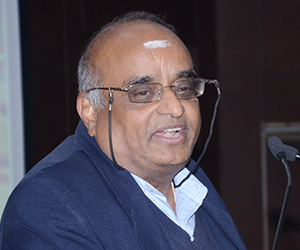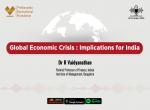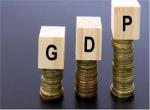India has been one of the largest beneficiaries of World Bank assisted schemes in the last few decades and due to this, several health and educational schemes were implemented. But in the life of every society and country, there comes a time to say that we can stand on our own feet particularly if the country has ambitions to become an important power. Since India cannot be both a supplicant and also a candidate for the high table of global powers, it is perhaps time to say good-bye to World Bank assistance by India.
During the tenure of the earlier National Democratic Alliance (NDA) government, a decision was taken to forgo bilateral assistance from several countries. At that time, it was received with skepticism by many. But the burgeoning foreign exchange reserves justified that decision and it also facilitated larger benefits to some poorer countries.
“First, taking advantage of our comfortable foreign exchange reserves and lower domestic interest rates, the Government has effected premature repayment of ‘high-cost’ currency pool loans of the World Bank, and of the Asian Development Bank (ADB) totaling around $ 3 billion. We intend to continue with this policy of prudently managing the external liabilities and of proactively liquidating relatively higher cost component of our external debt portfolio. “ [From the Budget Speech of the Finance Minister – 2003-2004]
The then Finance Minister Mr. Jaswant Singh initiated the following steps in the light of the above. The Government decided to (i) discontinue receiving aid from other countries except the following nine: Japan, UK, Germany, USA, EU, France, Italy, Canada and the Russian Federation and (ii) to make pre-payment of all bilateral debt owed to all the countries except the ones mentioned above.
Since July 2003, India has become a net creditor to IMF, after having been a borrower in the past. The Government has written off debts of 30 million US dollars due from seven heavily indebted countries as part of the ‘India Development Initiative’ announced in February 2003. The interest rate continues to be reduced and is around 6%. This is the lowest in the last thirty years and it is stimulating consumption and investment. These initiatives were largely welcomed and did not seem to have had any major impact on our development paradigm. Actually, it helped in India being seen in a positive light by many developing countries. Similar arguments could be considered for loans from World Bank of both the soft and hard variety. Considering our foreign exchange reserves and Balance of Payment positions, it may be the appropriate time to forgo loans from the World Bank.
We have provided in Table --1 the overall external assistance authorized and utilized both for loans and grants. We find that the grants portion constitutes around USD 350 million during 2012-13 and the total is of the order of USD 8674 million and in rupee terms, it is Rs.52378 crore. Given our GDP figure of Rs.100 lakh crore and a savings figure of Rs.30 lakh crore during 2012-13, this constitutes only a small portion of our national aggregates. We also find that the assistance utilized is lower than that authorized throughout the period, sometimes as much as merely 60%.
Table -- 1 Overall External Assistance (US $ Million)

Note: P - Provisional
Source: Table 8.1(A) & 8.1(B); pp 96 & 97, Economic Survey 2013-14, Ministry of Finance, Government of India.
We have provided in Table-2 the source wise external assistance, which have been utilized by India. We find that most of the assistance from IBRD namely World Bank and other development agencies are in the form of loans and it was of the order of USD 3093 million during 2013-14. This is from World Bank, ADB and IDA put together.
Table -2 Utilization of External Assistance by Source (US $ Million)

Note: * an amount of 28.5 million USD from Russia is included in this.
P- Provisional
Source: Table 8.2(A) & 8.2(B); pp S-99 & S-101, Economic Survey 2005-06 &Table 8.3(A) & 8.3(B); pp A-103 &105 of Economic survey 2013-14, Ministry of Finance, Government of India.
If we look at our foreign exchange position as given in Table-3, we find that it is of the order of 304 Billion USD in March 2014 and hence the aggregate assistance from these institutions are not critical from the point of view of our exchange position. We can always acquire technology or other requirements for any project by paying in the international markets.
Table -- 30.3 Foreign Exchange Reserves (US $ Million)

Note: @ Reserve Tranche Position; + Special Drawing Rights; * includes Reserve Tranche Position in IMF.
Source: Table 6.1(A) & 6.1(B); pp S-60 & S-62, Economic Survey,2013-14, Ministry of Finance, Government of India.
There was a time in the eighties when we needed to get forex loans and support for rupee expenditure. But with our burgeoning forex reserves, we need not be constrained by the amount of facility we get from the donors. After all self-help is still a good principle which can be practiced particularly when we are aiming for two digit growth rates and keeping more than 300 billion USD as foreign exchange reserves.
There are other important issues, which are linked with our continued dependence on World Bank aid. That is related to our ambition to be considered as a world power. We are interested in being included as a member of groupings like G-7 etc. and this implies that we cannot be a recipient of aid from the others who are sitting on the main table. World powers would prefer equals and not supplicants in their midst. In the recent past (in 2010), we have actually provided through IMF, facility-- assistance to Euro Zone countries of the order of 1bn USD which was nearly 1% of our GDP in 2010
The other dimensions are related to the conditionalities associated with such loans and the hoard of advisors who propagate a particular point of view. It has been reported that the World Bank has withdrawn its assistance in projects related to the health sector on the basis of complaints regarding corruption in procurement practices. It is also suggested that the Finance Minister has written to World Bank for a re-consideration. The pressure of the World Bank on this particular issue might be considered as appropriate but in the overall scheme of things, the requirements and conditions of the institution may not be appropriate for a country like ours, which is poised to become a major player in the affairs of the world.
The design of the project, the type of execution and the measure of benefits are all typically in the jargon of the World Bank and slowly, we have lost our ability to think through in an independent fashion on many crucial issues pertaining to development. Actually, it is the NITI Aayog, which should play the crucial role of formulating, evaluating and creating standards for projects. As far as the major infrastructure projects are concerned, institutions like the Infrastructure Development Finance Corporation and the NITI Aayog should play an important role.
A large number of least developed countries will be thankful to us if we come out of the assistance of World Bank since the pie available to them will be larger.
Of course, there may be protests from those who may become unemployed in Washington and in New Delhi. India is a major client of the World Bank and the ‘India Story’ is useful to them. If India is not a client, then the India Story will be even more catchy and impressive. It will showcase a borrower who has outgrown the situation of being a borrower and it will also establish the fact that the World Bank has achieved something in developing clients who do not need the Bank any more. The decision to bid good bye to World Bank will also bring smiles on the part of leftists. This is what is called unintended benefit of a major decision.
Poverty alleviation can and should be done by India with its own resources and experts and the money and expertise available at 1818 H Street, Washington D.C, can be beneficially used in other less developed countries.
India Inc. will have benefits in terms of its ability to raise loans abroad since we are not going around with a ‘begging bowl’ any more. More importantly, India Uninc. [small businesses] will also be benefitted since global companies will begin to look at India not only as a market but also as a sourcing point. In other words, the India story will get altered in terms of its ability to stand on its feet. Our providing loans and grants to other less developed countries say in Africa will help India Uninc. since that would boost trade and exports to those countries. India Uninc. has a significant share in our export trade. This will give a big boost to “Make in India” activities
Published Date: 3rd February 2015, Image source: http://s3.india.com
(Disclaimer: The views and opinions expressed in this article are those of the author and do not necessarily reflect the official policy or position of the Vivekananda International Foundation)









Post new comment